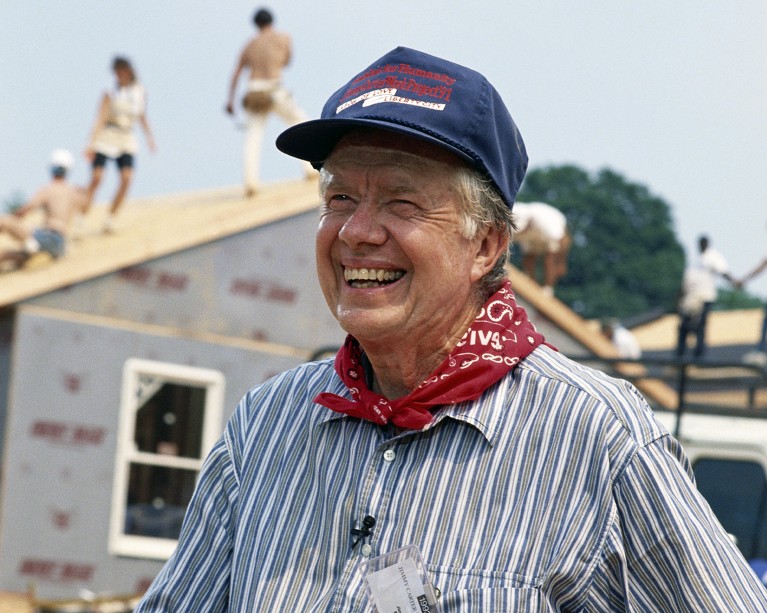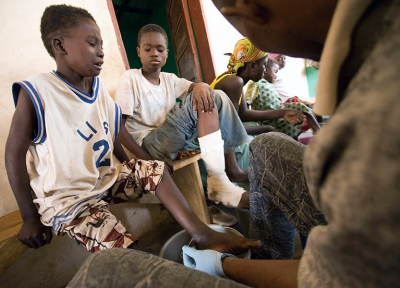
Credit: Mark Peterson/Corbis via Getty
Jimmy Carter’s work in health, peace and diplomacy crossed decades, continents, boundaries and disciplines. After his US presidency (1977–81), he found a focus for his scientific and diplomatic work by launching the Carter Center in 1982 with his wife Rosalynn Carter. The organization is built on a commitment to human rights and the alleviation of human suffering. Its programmes address the prevention and resolution of conflicts, enhancing freedom and democracy and improving global health. Over decades of work, Carter Center delegations have observed elections in more than 100 countries, promoted peace in multiple nations, championed the control and elimination of neglected tropical diseases and strengthened international standards for human rights. Carter was awarded the Nobel Peace Prize in 2002 for his work in conflict resolution, human rights and social progress. He has died aged 100.

Even with no drug or vaccine, eradication of Guinea worm is in sight
The Carters’ work was exemplified by their dedication to the eradication of Guinea-worm disease, a debilitating parasitic disease transmitted by drinking contaminated water. Carter brought not only his compassion and persistence, but his political acumen. In 1995, he brokered what has become known as the South Sudan Guinea-worm ceasefire. Working across both sides of the Second Sudanese Civil War, he was able to get the parties to agree to stop fighting long enough to begin efforts to eradicate the disease in a country that then had three times as many cases as the rest of the world combined. Guinea-worm disease is not yet eradicated, but cases have gone from 3.5 million when the programme started in 1986, to 10 confirmed cases between January and October 2024.
Son of a nurse and a farmer, James Earl Carter Jr, was born in the small farming town of Plains, Georgia. He grew up in the nearby community of Archery and was educated in public school, later attending Georgia Southwestern College in Americus and the Georgia Institute of Technology in Atlanta. In 1946, he graduated from the United States Naval Academy in Annapolis, Maryland, and became a submariner. Carter received further training in reactor technology and nuclear physics at Union College in Schenectady, New York, and served as pre-commissioning officer for the US Navy’s second nuclear submarine, the USS Seawolf.
He left the navy and returned to Plains to take over his family’s peanut farm after the death of his father in 1953. He became active in the civil-rights movement with the Democratic Party and moved into politics, being the governor of Georgia from 1971 to 1975 and serving one term as the 39th president of the United States from 1977 to 1981. He married Rosalynn Smith in 1946. They had 4 children and shared 77 years together, with Rosalynn being a crucial partner in both his political and philanthropic activities until her death in 2023.

Eight countries eliminated a neglected tropical disease in 2022
In 1982, Carter became a professor at Emory University in Atlanta, Georgia, and founded the Carter Center in the same city. The centre identified Guinea-worm disease as a priority and launched an eradication campaign in 1986. Infection with the parasite Dracunculus medinensis results in a blister or sore that can appear anywhere on the body around one year after exposure. From this burning sore emerges an adult worm about one metre long, which must be removed inch by inch over days or weeks. As well as being painful, the inflammatory response can be debilitating and result in deformity and disability. There is no drug to treat or prevent the infection, nor a vaccine or diagnostic test. On top of that, this disease affects some of the hardest to reach, most marginalized populations around the world.






